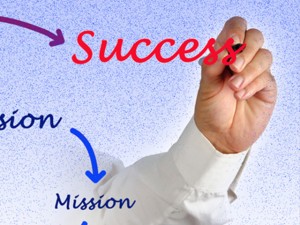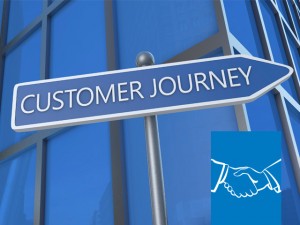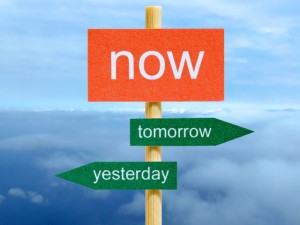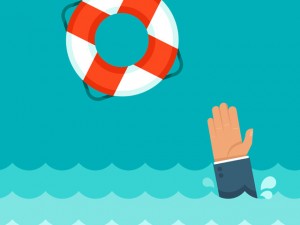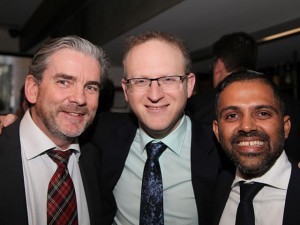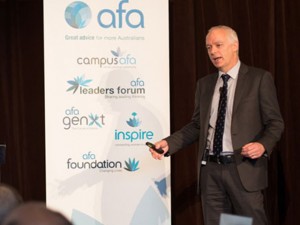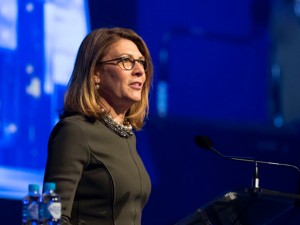While Australia’s big bank have easily recognisable brands, the same cannot really be said about financial advice businesses. One advice practice is hoping to change that, branding its offer a ‘community of tall poppies’. In this article, Wealth Enhancers’ co-founder and CEO, Finn Kelly, explains the thinking behind the rebrand…
Finn Kelly and Sarah Riegelhuth are familiar faces in the Australian advice sector. The pair founded their advice business Wealth Enhancers in 2010. Since then, between them they have received numerous industry and business awards, attended and presented at a range of business and entrepreneurial events, and Sarah has published her first book – Get Rich Slow.
But if you visit their newly revamped advice business website, you have to look hard to find them. That’s because Wealth Enhancers – now known by its acronym WE – is about a community of members, not any one team member.
WE unveiled its new brand – a community of tall poppies – in July 2015. Finn says that while the imagery and the tagline may be new, the business is not.
“We’ve had quite a few comments about the ‘new business’ and the ‘new model’, however it’s what we’ve been doing for three years, we’ve just gotten better at explaining it.
“WE launched about three years ago, as an offshoot of our private client business. We had become really passionate about helping Gen Y achieve what our older, wealthier private clients had, and we knew that the community approach was something that would work for Gen Y. Essentially with the rebrand, nothing has changed internally – what has changed is that we’ve finally learned how to articulate this model externally.”
The brand grew out of what Wealth Enhancers’ clients were saying about their relationship with the company, as well as an understanding of how Generation Y learns best.
“It’s really come out of looking at other areas of our life, and identifying where we’ve excelled. When we’ve had success it’s generally because we’ve shared things with other people. You learn a lot from your peers, your friends and associates.
the way adults learn best is from their peers
“For example, if you think about a common goal, like wanting to lose weight, or training to run a marathon, what do we all do? We put the call out to our friends. We research, we ask for advice, we share our progress, and we look for people to keep us accountable. Why isn’t that the case with money? Why don’t we ask our friends how to pay off our credit card debt, or how to put aside an education fund for our children? For some reason there’s a stigma in society that exists around talking about money. That’s why most people aren’t actually in a very good position.
“We realised we needed to find a way to break down that stigma, because the way adults learn best is from their peers. So the adviser’s role becomes less about simply providing the information and more about helping the client to share their stories and delivering personalised coaching to help them reach all their goals, not just their financial ones.
“Our members identify with us as a community – something they are a part of. When they join us they see an environment where they can learn from one another and continuously improve. We’re a group of like-minded people who are supporting one another to reach our goals. So that’s where the repositioning became important.
“By rebranding, it means our members can articulate it better to their peers, and we can attract the kind of people we want as members – this also goes for staff members.”
The membership aspect of WE is an extremely important component of the new brand. To access the community, ongoing coaching and receive financial advice, aspiring members must go through an application process.
“Our members expect us to maintain the community for them. The community drives others to move forward. If everyone else in the community is doing well, naturally they will pick up the ones who are stalling and help them to move forward. You see that with groups of friends – they’re generally all like-minded, at similar stages of life.
“We want successful people in our community, so that it can breed more success. Although our team are all highly qualified, and our advice is of an extremely high standard, we know that the real value comes from being a part of our community of high achievers.”
Rebranding as a community of tall poppies also meant that WE had to let go of some of their existing members.
I think advisers, in the past, have been too scared to reject business
“What we identified were six different traits that we wanted from members of our community. One of them is ‘Are they engaged in the community?’ We want people to engage because that’s what our community is all about. They might seem the perfect member in all other areas, but if they’re not willing to engage then they’re not perfect, and we have to make a tough call. We established that if existing members weren’t ticking at least four out of six of the identified criteria, we needed to have a conversation with them about moving them on.
“It was a really difficult decision to make as a business (especially a reasonably new business), to turn away paying customers, but our values are what matter and it’s about respecting our team and our existing members. We ended up ‘sacking’ 18% of our member base, and I think it’s one of the best things we could have done.
“I think advisers, in the past, have been too scared to reject business. But we’ve come to understand that rejecting the wrong type of business will only make you stronger.
“We knew our ‘community approach’ was working when we had members telling us that they had friends asking to join, however the members were not convinced they were the right fit. This showed us how protective our members have become of the community. They see it as a representation of themselves and they’re proud to display that membership – like you might a football club membership. They’re self-selecting their own community.”
Finn is quick to point out that the WE model is not for everybody. But by having a brand and set of values, potential clients can quickly see whether they are the right match for the WE community.
“You need to build a business around a brand, so people can say: ‘I identify with that brand. I trust that the process and systems that business has built are so good that even if the people come and go, I’m still getting the brand experience I signed-up for.’
“The brand also needs to be more than the person. You’ll notice with our business that there’s no branding on the website about Sarah and I. It’s got nothing to do with us. I’ve had a business like that and it nearly killed me; you end up with very little freedom.
“We’ve seen that at work in our own business. As people have come and gone within our team, where perhaps we’ve made mistakes recruiting in the past, or people have simply moved on, one thing that hasn’t changed is our members – they’re still with us. That is not necessarily the way the advice business has traditionally worked. I have no doubt that in our business if someone leaves, I know our members will stay.”
In the future, Finn believes more advisers will see the benefits of building a strong business brand, and the wider Australian community will also benefit:
“There aren’t necessarily many strong advice brands in the market. When it comes to finance and money, it’s almost like people believe we can’t market it, that it’s not appropriate. But if you really believe in what you do it’s part of your duty of care as an adviser to go out and market advice. The way I see it, if we can get more people in the door, through our marketing and brand, then we’re helping more people to get quality advice.
“I believe in talking-up our profession. There are a lot of people out there who criticise and bring down advisers. You won’t hear that from us. I think the profession is brilliant. It’s sad that there are people out there who feel they need to bring us down, because all that’s doing is ruining all of our brands. But I think most people in advice are doing a good job, they’re just not letting people know about it. All that happens is that the bad ones get advertised, through the media. So we need to make the voice of the good ones stronger. And branding is a great way to do that.”

Finn is a serial award-winning entrepreneur and investor. He is currently the co-founder and Chief Visionary Officer of WE LOVE NUMBERS and WE
Contact or follow the author: Email | Twitter | Facebook | LinkedIn




